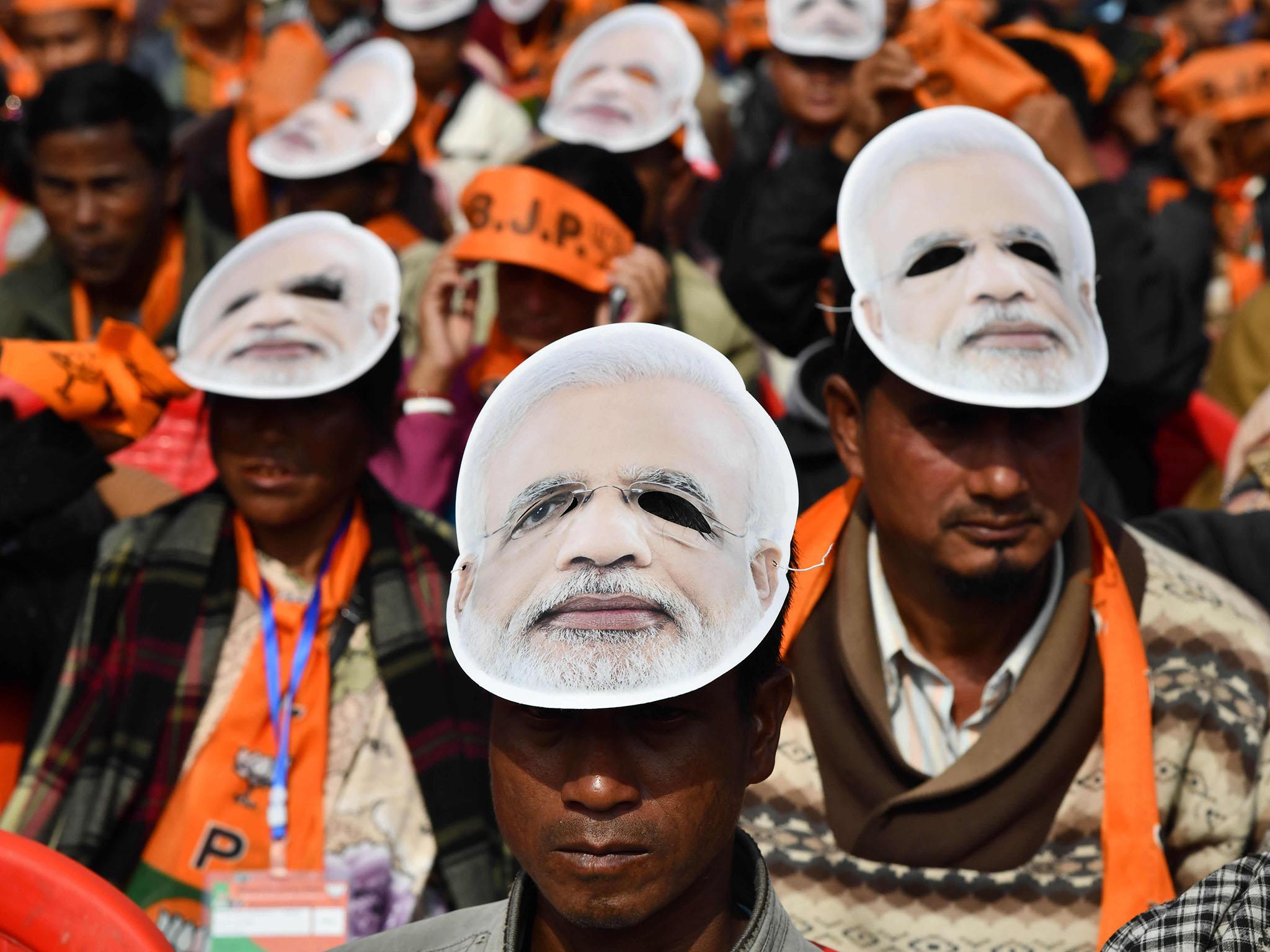Narendra Modi’s nationalism is starting to lose its appeal
Gujaratis are begging to ask loudly why the jobs and wellbeing they were promised had failed to materialise


Everyone thought it would be a cake-walk. But Indians have a long-standing tradition of upending even the most confident political pundits.
Voters in Gujarat, one of India’s most important states, just delivered a stinging rebuke to its Hindu nationalist Prime Minister in election results out this week. They offered not just a warning for the BJP government, but something more powerful: a sign of how populist nationalism can be stopped in its tracks.
Gujarat is also one of India’s most powerful states and Prime Minister Narendra Modi’s home turf. He was its chief minister from 2001 to 2014, and can speak to its people like no other modern Indian politician. A large proportion of British Hindus also hail from Gujarat, and have been an important part of his base.
Just a few weeks ago, the PM’s right-hand man Amit Shah was predicting they would easily win 150 seats out of 182 across the state. They already dominated state politics and controlled its media industry.
But the BJP failed to cross the 100-seat mark. They even lost Modi’s hometown seat by a wide margin.

Narendra Modi may have won overall, but like Theresa May in June he is wounded by the price of victory.
So what happened? The simple answer is vikas (development). Gujaratis started to ask loudly why the jobs and wellbeing they were promised had failed to materialise.
That feeling of alienation played out in stark urban-rural divide. Well-to-do Gujaratis in cities overwhelmingly went for the BJP – but most Indians still live in rural areas, and that is where the opposition Congress party picked up votes.
The Modi model has long been accused of bias towards big corporate friends. Even as chief minister he was frequently accused of making deals that helped rich businessmen at the expense of small farmers and workers.
Sound familiar? The Modi machine has much in common with the Trump train; both employ divisive nationalist rhetoric to polarise voters, both claim to be focused on creating jobs and both have dismissed critics as “anti-national”.
But, as Abraham Lincoln supposedly said, “You cannot fool all the people all the time.”
The Modi campaign was partly derailed by the opposition leader Rahul Gandhi, who finally found a voice and was able to stitch together a loose alliance of Modi critics. For the first time he stopped looking like a joke and became a more credible opposition leader.
But the strongest opposition to Modi came from the Gujarati people themselves. After nearly two decades of total BJP dominance, the claims about development trickling down began to ring hollow.
The most effective thorn on Modi’s side was Hardik Patel, a 25 year-old activist who single-handedly mobilised hundreds of thousands of Gujaratis (from the Patidar caste) against Modi, on the basis they were being excluded from development. This was a rebellion of epic proportions from Modi’s most dependable constituency, and says much about India’s lopsided development.
While development has lifted the urban middle-class, farmers are turning to suicide at an increasing rate. The effect of “demonetisation” (ie temporarily withdrawing cash notes) was also devastating on the poor.
Both the media and the BJP barely saw this backlash coming. They threw everything to neutralise it – even an alleged “sex tape” involving Patel. They tried to tie the opposition leader to the Pakistani government. They accused them of being in hock to Muslims. The xenophobic dog-whistles didn’t work.
Modi’s hollow victory illustrates a broader point about populist nationalism. His party may have mastered the art of whipping up bigotry to use to win elections, but it will only be tolerated if their lives are improving.
Modi remains an effective politician and a master strategist. But this election has shown not only that he can be defeated, but also how. As Bill Clinton’s campaign manager said, “It's the economy, stupid.”
It’s a lesson for those who oppose populist bigotry everywhere.
Join our commenting forum
Join thought-provoking conversations, follow other Independent readers and see their replies
Comments
Bookmark popover
Removed from bookmarks